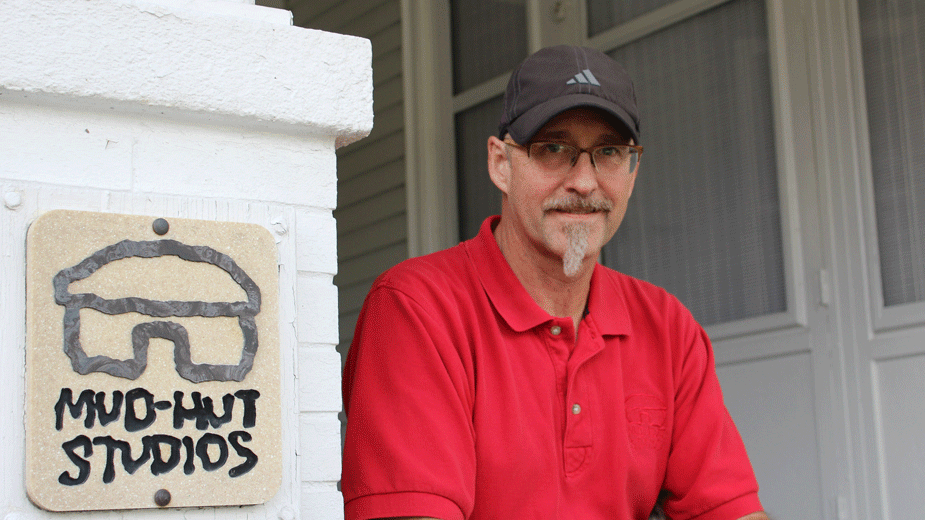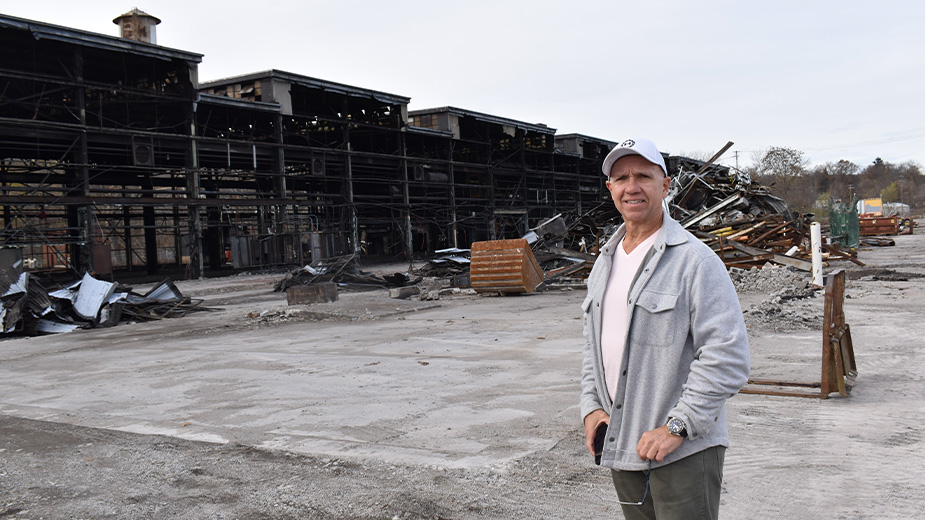Mansmann Project Guides Businesses Along Growth Path
SHARON, Pa. – Bill Dodd, founder of Mud-Hut Studios says he was skeptical when members of the Mansmann Foundation’s Shenango Valley business networking group suggested he could accomplish more if he tried to work outside of his home, where his media production company was based.
At home, he felt he controlled his environment, but that sense of control “is just an illusion,” he says.
He now drives to the Tech Belt Energy Innovation Center in Warren where he finds that he gets more accomplished in 90 minutes than he did during the entire day when he was working at home.
The suggestion – which Dodd earlier dismissed – is an example of the mentoring that business owners receive by participating in the Mansmann networking group.
“When you work at home, you are ripe for distraction,” says Terry Doloughty, Mansmann Foundation small-business specialist.
During the two-hour program, business owners meet monthly to discuss the issues they face as well as to step outside their daily grinds.
“Everyone is working under-capacity and they are overworked, so when you step out for those two hours you can take a deep breath and you can actually be a business owner,” Doloughty says.
The Mansmann Foundation, which had confined its efforts to the Greater Pittsburgh area, launched the Sharon group last September in collaboration with the Shenango Valley Chamber of Commerce. The success of the Sharon experiment is such that the Pittsburgh-based initiative is looking to expand its program here.
“I can safely say we’ve achieved proof of concept,” Doloughty says.
“It will be this year. We’re already discussing getting more facilitators,” says Sherris Moreira, executive director of the Shenango chamber. Mansmann could replicate elsewhere the model it created in Sharon, she says.
Future groups could be based on a specific area, community or industry, Doloughty adds. “The experience they have has to be relevant – and not 30 years old.”
“We want it to be a natural fit. Maybe women-owned businesses. Maybe veteran-owned businesses,” Moreira says. Once the groups are identified, they would find facilitators tailored to meet their needs.
A potential group in Sharpsville with a heavy concentration of food-related enterprises would benefit from someone “connected to the food industry, she says. “We’re trying to find the fit,” she says.
About a dozen business owners participate in the monthly sessions, which cover an array of topics. One session focused on entrepreneurial anxiety and depression, how it can be a barrier to success.
“So many of our entrepreneurs have based their pricing on the fact that they might not have been confident in what they’re doing,” Doloughty says.
In many cases, they are first-generation business owners and have no family members to turn to for advice.
“One of the big benefits of the group is realizing that you are not alone,” Doloughty says. “When you come into this room and you hear the other business owners sharing the problems they’re encountering, you start to realize, ‘It’s not just me.’ ”
The “back-and-forth” among the group members is “valuable,” says entrepreneur John Ackley. The Sharpsville businessman operates John Ackley LLC, a software and consulting firm; Boldly On Inc., which builds and hosts websites; and Quantum Ogre LLC, which is staging the upcoming Roundtable Con and does game publishing.
Being an entrepreneur is “kind of lonely and it can be intimidating to feel that you’re up against the entire economy by yourself.” So being able to share ideas with people “having similar problems or problems that may not be exactly the same but are still difficult to overcome is valuable,” Ackley says.
“Someone can be hiding something or be in denial about something for years,” Doloughty says. “And a businessman can call them on it in 10 minutes because they’ve lived it.”
“There’s comfort in knowing that everyone else is experiencing the same problems that I am,” says Stacey Keating, owner of Stella’s Sundries, Hermitage.
Keating benefits from the knowledge and experience of her fellow entrepreneurs, she says. Because of her experiences with the group, she is drafting “a real business plan” that she can present to investors.
The group’s March meeting drew Cathy and Paul Kentzel, proprietors of Barnard House in Emlenton, a bed-and-breakfast roughly an hour east of Sharon.
“I’ve never participated in anything quite like it,” Cathy Kentzel says. Other chambers have held workshops but participation was restricted to members, unlike the Mansmann-Shenango chamber initiative.
Those sessions also lacked someone with expertise to guide the discussions, Kentzel adds.
“It usually was just the small-business owners talking,” she says, “and a lot of times you can get off track.”
“The format of the meeting is structured a lot better. You get an education out of it,” Paul Kentzel agrees.
“[Doloughty is] a very good presenter, so we’ll definitely make the next meeting. And as long as they keep our interest sparked we’ll be coming here”
Moreira enjoys watching the aftermath of the monthly sessions – the meeting after the meeting and what she calls “the soup” – when the business owners approach each other to discuss potential collaborations and projects.
“There’s a lot of cross pollenization going on,” Moreira says. “That’s the best part.”
Pictured: Bill Dodd, owner of Mud-Hut Studios in Sharon, was connected to the Tech Belt Energy and Innovation Center in Warren, Ohio, through the Mansmann Foundation’s efforts.
Copyright 2024 The Business Journal, Youngstown, Ohio.



